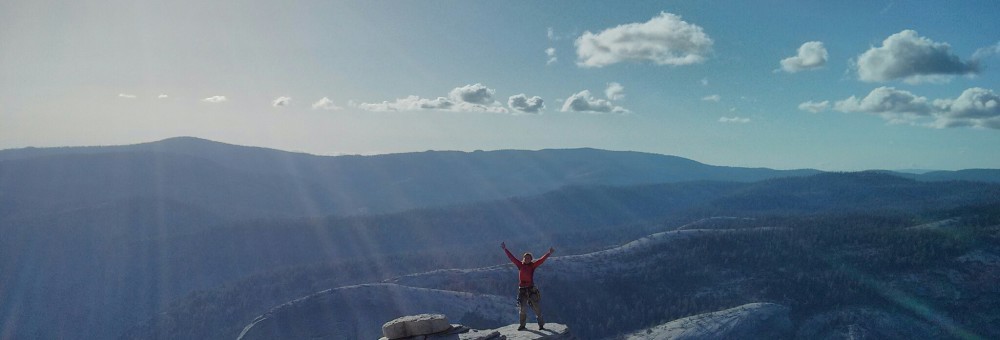I’ve been stuck, for a while now, in the gap between what I think I can say and what I think the situation deserves.
I’ve been in the role of trying to explain our choices, foolish and deadly in hindsight, to family and to friends. And though I’ve used all the skills I have to find the right words in that moment, it has never felt enough. The truth is, there’s nothing I can say that will help. I also don’t think we can learn much from death. And if we try too hard to be scholastic, to be clever, to extract meaning… I think we lose the bigger picture.
What I believe in is the freedom to be wrong. To be unlucky. To be hurt. And I think all of us deserve love even if we go out into the mountains and don’t come back. Or just barely come back. Yes, it’s a waste to be young and healthy and at the beginning of your career and have a rappelling accident. It’s a huge loss. But it’s also a loss, every day and at every step, to try to prevent this person from being at the top of that belay station. I lost a friend who has been with me since middle school. We’ve been bouncing between each other for so long I didn’t realize the full extent of what I was missing until weeks later. We’ve bounced ideas about the world, skills, friends, fears, anecdotes, pictures of our cats. She was my midnight phone call and I don’t think I can convey here what an exceptional person she was. I expected her to be president. She had all the skills and the network and the genuine goodness and optimism. And losing her is a big loss for the world.

But. I’m not going to pretend that we can walk any of it back. That we can cut Fiona away from her choices and leave behind just Fiona, alive for many more years. She was doing something she had the skills, the experience, and the passion to do. That’s enough for me. She is justified in her choices. I trusted her with my life many times. This accident doesn’t change how I see her. How competent she was. Or how right she was. The world is an unpredictable, chaotic place. I’ve learned to step back and not try to find patterns in every unfortunate thing that has happened. Without meaning we can still grieve for our losses. And resolve to be kinder, more loving, and more appreciative of the people around us.
Where you stand now is separated by a paper-thin veil from being my Fiona. Or being me. Our fear and discomfort around death and disability pull us to create illusions of control. Mental log sheets of risk. And though I don’t think the usual calculations are useless, I do think they work more to create a feeling of comfort than a predictable result. Yes, we can mitigate risk. But I don’t see a significant difference between what happened to Fiona and what happened to a friend who was hit by a car on her bicycle. Or a man who I met in the SCI rehab hospital who slipped walking from his pool to the back door. Things happen. And the context of mountain sports can be a distraction.
When I was in the hospital, doctors constantly asked me what happened. And when I said rock climbing accident they made sad clucking noises and knowing nodded. Suggesting that’s expected, given how dangerous rock climbing is. Suggested I did it to myself. But my many car-accident-created companions were treated as victims and unfortunate souls. There are risks accepted and normalized by society. And risks that are not. And the distinction is pretty arbitrary, in my mind.
The people who I admire most are the ones who didn’t yield in the face of loss and grief. A friend who got a high level spinal cord injury paragliding and then went back to paragliding. Fiona for visiting me in the hospital for a week after I got injured and then going on a rock climbing trip. The widower I met right out of the hospital who doesn’t regret that last mountain bike ride with his wife. The people who loved us and continue to love us. We may seem foolish and fanatical for making these choices. But unless you’re inside my head, you don’t know how it feels to step back. To make a different choice. Fear is both my favorite and least favorite emotion.
Fiona used joy as a tool to connect deeply to others. I want to use joy as a tool with grief. Like bubbles to lighten a brick of a meal. Like MDMA used to treat veterans with PTSD. Not to forget the sadness or push it out but to make it more palatable. When I first heard the news about Fiona I went paragliding. I needed the views and the sky and the peaceful floating to feel my feelings. And then I cried at the landing site, scaring my pilot.

I’m trying to find acceptance of the sad stories in my life. They are woven in so closely with the happiest ones. Acceptance of risk is easier than acceptance of consequences. The first is a choice you make once, in a split instant. The second is a choice you have to make fresh every day. It takes a lot more bravery to live the rest of your life.
